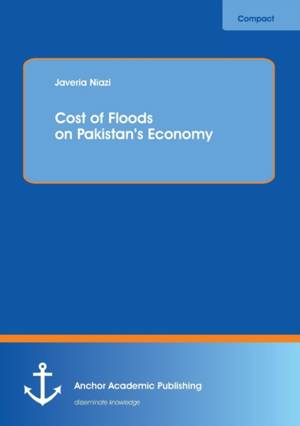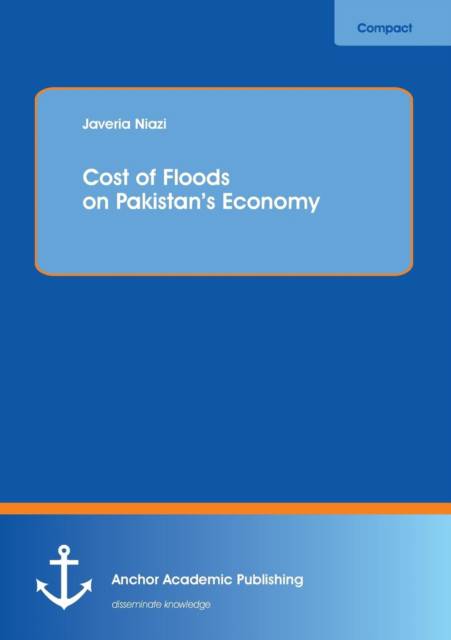
- Afhalen na 1 uur in een winkel met voorraad
- Gratis thuislevering in België vanaf € 30
- Ruim aanbod met 7 miljoen producten
- Afhalen na 1 uur in een winkel met voorraad
- Gratis thuislevering in België vanaf € 30
- Ruim aanbod met 7 miljoen producten
Zoeken
€ 34,45
+ 68 punten
Omschrijving
With an average annual rainfall of less than 240 mm, Pakistan is one of the most arid countries in the world. Every year, during the monsoon season from July to September, Pakistan experiences heavy rainfalls. However, this year the substantial amount of unexpected monsoon rainfall resulted in heavy floods as a consequence of the absence of adequate infrastructure (dams, barrages, reservoirs). The heavy rainfall started in the last week of July 2010, and continued for days in the regions of Balochistan, followed closely by a second spell in Khyber Pakhtunkhwa (KPK). The rain continued until the first few days of August 2010, causing tremendous damage to both property and lives. The heavy rainfall flooded the already flooded rivers and streams, causing the river banks to burst. The flood water started causing destruction in KPK, and continued its journey towards Punjab and Sindh. The floods in Pakistan have had an impact on all the sectors of the economy. Handling these problems would require a model that could simultaneously capture the major relations among different sectors of the economy, and thereby, trace through the indirect and secondary effects on the economy. The model used to calculate the impact is subjected to a number of simulations that are run on E-views. In this study, the author uses a model that reports clearly what Pakistan will face in terms of production loss and recovery. The results are assessed on the basis of past data and the current situation in the country. The author's main purpose is to define the costs Pakistan faces in such a situation, and further, to develop policy recommendations.
Specificaties
Betrokkenen
- Auteur(s):
- Uitgeverij:
Inhoud
- Aantal bladzijden:
- 64
- Taal:
- Engels
- Reeks:
Eigenschappen
- Productcode (EAN):
- 9783954890668
- Verschijningsdatum:
- 23/05/2013
- Uitvoering:
- Paperback
- Formaat:
- Trade paperback (VS)
- Afmetingen:
- 148 mm x 210 mm
- Gewicht:
- 95 g

Alleen bij Standaard Boekhandel
+ 68 punten op je klantenkaart van Standaard Boekhandel
Beoordelingen
We publiceren alleen reviews die voldoen aan de voorwaarden voor reviews. Bekijk onze voorwaarden voor reviews.











